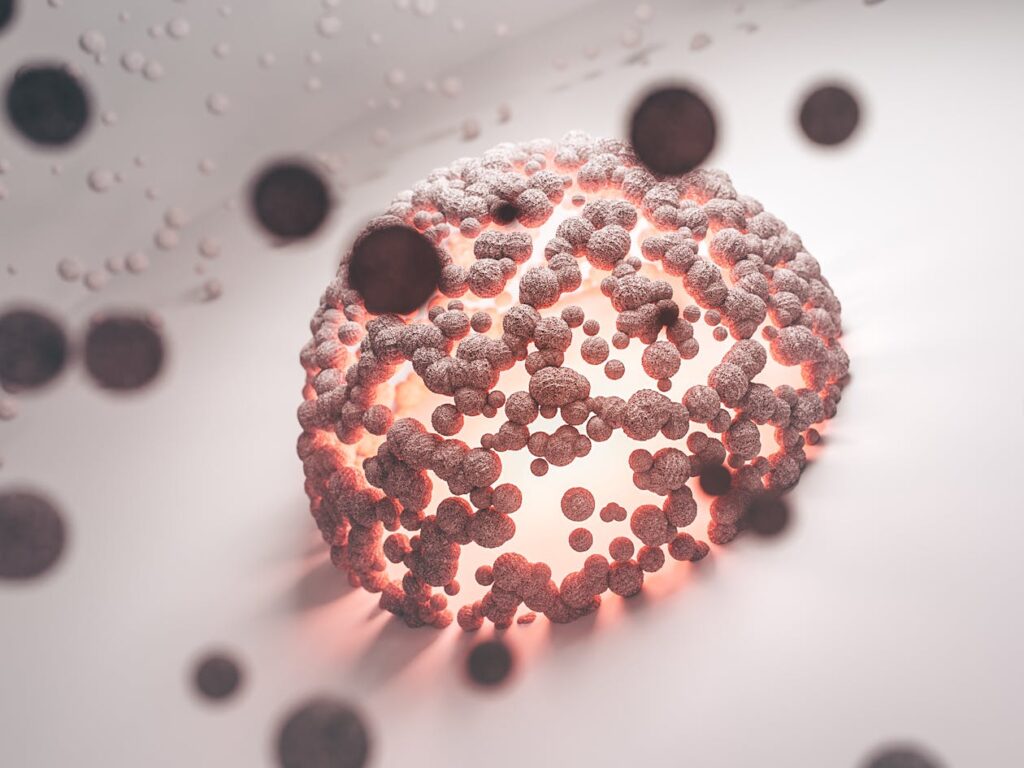Scientists May Have Actually Found One of the Causes of Autism

After decades of searching, scientists may have stumbled upon something extraordinary. Hidden within the complex ecosystem of bacteria living in our guts lies a potential key to understanding autism, but not in the way anyone expected.
For years, researchers have chased countless theories about what causes autism spectrum disorder. Some proved to be harmful myths, while others led down dead ends. Now, groundbreaking research from the University of Virginia has uncovered a connection so unexpected it might revolutionize how we think about neurodevelopmental conditions.
Here’s what makes this discovery truly remarkable: the answer doesn’t lie within the child diagnosed with autism. Instead, it appears to originate from an unlikely source during pregnancy, one that could potentially be modified to prevent some cases from ever occurring.
What scientists found challenges everything we thought we knew about when and how autism develops. But before we reveal the full scope of this discovery, you need to understand the microscopic world that influences your brain more than you ever imagined.
Your Gut Microbiome: More Powerful Than We Ever Imagined
Trillions of bacteria reside within your digestive system, forming a complex ecosystem that scientists refer to as the gut microbiome. Recent research reveals that these tiny organisms have a profound influence over your entire body and mind.
Your gut bacteria affect how you respond to fear and stress. They influence your weight, mental health, and susceptibility to autoimmune diseases like type 1 diabetes and lupus. Scientists now understand that this internal bacterial community literally shapes who you are, from your mood to your immune responses.
Studies have shown that gut bacteria can alter brain chemistry, influence behavior, and even impact personality traits. What seemed like science fiction just decades ago now represents established medical fact: the bacteria in your digestive system communicate directly with your brain through what scientists call the “gut-brain axis.”
Given these powerful connections between gut health and brain function, researchers naturally wondered whether microbiome differences might contribute to neurodevelopmental conditions, such as autism.
Plot Twist: It’s Not Your Gut Bacteria – It’s Your Mom’s

University of Virginia researchers made a discovery that caught everyone off guard. After investigating potential links between gut bacteria and autism, they found something unexpected: the bacterial community that matters most doesn’t belong to the child with autism.
Lead researcher John Lukens explained the significance: “The microbiome can shape the developing brain in multiple ways. The microbiome is really important to the calibration of how the offspring’s immune system is going to respond to an infection or injury or stress.”
Maternal gut bacteria during pregnancy appear to influence whether babies develop autism-like characteristics. Your mother’s microbiome while you were in the womb may have shaped your neurodevelopment more than your bacteria ever could.
Research has revealed that specific bacterial communities in pregnant mothers trigger immune responses that affect the developing brains of their babies. These effects occur during pregnancy, not after birth, suggesting autism’s origins may trace back to the earliest stages of human development.
Meet IL-17a: The Immune Molecule That Changes Everything

At the heart of this discovery lies a potent immune system molecule called interleukin-17a, or IL-17a. Under normal circumstances, IL-17a protects against infections, particularly fungal diseases. Medical researchers already knew that this molecule contributed to conditions such as rheumatoid arthritis, multiple sclerosis, and psoriasis.
However, IL-17a has another function that researchers have recently discovered: it can influence brain development during fetal development. When certain gut bacteria trigger excessive IL-17a production in pregnant mothers, this immune response appears to alter the formation of neural connections in developing brains.
Different bacterial communities produce different levels of inflammation and immune activation. Some maternal microbiomes remain relatively stable, while others trigger strong IL-17a responses that can affect the development of babies.
Scientists have discovered a potential biological pathway linking maternal gut health to autism development through immune system activation.
The Mouse Study That Changed Everything We Thought We Knew
To test their theory, researchers designed an elegant experiment using laboratory mice from two different colonies. These mouse populations harbored distinct gut bacterial communities—one group was prone to inflammatory IL-17a responses, while the other group was not.
Scientists artificially blocked IL-17a production in pregnant mice from both groups and then observed the outcome for their babies. When IL-17a was suppressed, all baby mice from both colonies developed normally with typical social behaviors.
But when researchers allowed natural IL-17a production to continue without intervention, only babies from mothers with inflammation-prone gut bacteria developed autism-like behaviors. These mice exhibited social difficulties, communication problems, and repetitive behaviors similar to those observed in human autism symptoms.
Most remarkably, the timing proved crucial. Initial suppression of IL-17a prevented problems, but when inflammation was allowed to proceed naturally during brain development, lasting changes occurred that affected behavior throughout the mice’s lives.
Proof Comes From an Unusual Source: Poop Transplants

Scientists needed definitive proof that gut bacteria, not genetic differences, caused these behavioral changes. Their solution involved an unusual but scientifically rigorous approach: fecal transplants between mouse colonies.
Researchers transferred gut bacteria from inflammation-prone mice to the typically resilient colony through direct fecal transplantation. After the bacterial communities in the previously unaffected group changed to match the inflammation-prone pattern, pregnant mice from this group began producing babies with autism-like behaviors.
“To confirm that this was due to the group’s unique microflora, the researchers performed a fecal transplant on mice from the second group using the feces of the mice from the first group,” the study documented. Results matched perfectly—bacterial transfer also transferred autism susceptibility.
This experiment provided smoking-gun evidence that specific gut bacterial communities in mothers directly influence whether babies develop autism-like characteristics. Genetics alone couldn’t explain these results; only bacterial differences accounted for the dramatic behavioral changes.
What Autism-Like Behaviors Look Like in Lab Mice
Researchers measured autism-like behaviors in mice using carefully designed tests that mirror human autism symptoms. Baby mice separated from their mothers typically produce ultrasonic vocalizations—essentially mouse “crying” or communication calls. Mice with autism-like conditions made significantly fewer calls and vocalized for shorter periods.
Social preference tests revealed additional problems. Normal mice prefer interacting with other mice over inanimate objects, but mice with autism-like behaviors showed no clear preference between novel mice and novel objects. They exhibited reduced social interest, similar to characteristics of human autism.
Repetitive behaviors were observed in marble-burying tests, where mice with autism-like conditions exhibited excessive marble burying compared to typical mice. These repetitive actions mirror stimming behaviors commonly observed in humans with autism.
Scientists confirmed that these behavioral differences weren’t due to general health problems or movement difficulties—the mice showed normal activity levels. Still, they displayed specific social and communication challenges characteristic of autism spectrum disorders.
From Mice to Humans: What This Could Mean for Pregnant Women
Animal studies don’t automatically translate to human pregnancies, but these findings offer compelling evidence for further investigation. Researchers acknowledge that their discoveries represent preliminary steps toward understanding the complex origins of autism.
“These are preliminary studies and may not translate to human pregnancies, but it does offer an interesting avenue to explore as far as autism research is concerned and provides strong evidence that the health of the mother’s gut plays at least some role in the onset of neurodevelopmental conditions,” scientists noted.
Human studies represent the logical next step. Researchers plan to investigate whether similar bacterial communities and immune responses occur in pregnant women who later have children diagnosed with autism.
If human studies confirm these animal findings, the implications could be profound. Prenatal interventions targeting maternal gut health might prevent some autism cases before they develop.
Beyond IL-17a: Other Pieces of the Autism Puzzle

Scientists emphasize that IL-17a represents just one component in autism’s complex puzzle. Lukens acknowledged, “There are also several other molecules to examine. As Lukens added, IL-17a may be just one piece in a much larger puzzle.”
Autism spectrum disorders involve multiple genetic, environmental, and developmental factors. No single cause explains all cases, and this gut bacteria connection likely accounts for only a subset of autism diagnoses.
Future research must identify other immune molecules, bacterial species, and biological pathways that contribute to autism development. Scientists anticipate discovering additional connections between maternal health and neurodevelopmental outcomes.
Understanding the full complexity of autism requires investigating multiple potential causes simultaneously, rather than focusing on single explanations.
Hope for Prevention: Could We Stop Some Cases Before They Start?

These discoveries raise exciting possibilities for autism prevention through maternal health interventions. If specific gut bacteria trigger autism-causing immune responses, could modifying these bacterial communities during pregnancy prevent some cases?
Potential approaches include probiotic supplements, dietary modifications, or targeted treatments that reduce harmful inflammation while preserving beneficial immune functions. Scientists could develop screening tests to identify pregnant women at higher risk based on their gut bacterial communities.
However, researchers strongly caution against the premature clinical application of these findings. Much more research is needed before any interventions can be safely recommended for pregnant women.
The complexity of both gut bacteria and immune systems means that well-intentioned but poorly understood interventions could potentially cause unintended consequences.
What Parents Should Know Right Now
Current research doesn’t provide immediate clinical recommendations for pregnant women or families affected by autism. These findings represent early-stage scientific discoveries that require extensive additional study before practical applications emerge.
Parents shouldn’t attempt to modify gut bacteria or immune responses based on preliminary animal studies. Safe, effective interventions require rigorous human testing that hasn’t yet occurred.
Instead, pregnant women should continue following established prenatal care guidelines while researchers work to translate these discoveries into practical medical recommendations.
Families affected by autism deserve continued support and evidence-based treatments regardless of what causes the condition in individual cases.
A New Chapter in Autism Research Begins
Scientists have identified a potential biological pathway that contributes to autism development through interactions between maternal gut bacteria and the immune system. While this represents significant progress, it’s just the beginning of understanding autism spectrum disorders.
Future research will determine whether these findings apply to human pregnancies and whether interventions can prevent some autism cases. Scientists must also investigate other causes and contributing factors that affect neurodevelopment.
For families touched by autism, this research offers hope that prevention strategies might someday reduce the number of children affected by these challenging conditions. Until then, continued research and comprehensive support remain essential for the autism community.
What would it mean for families everywhere if scientists could prevent even some cases of autism before they begin?
Loading...

